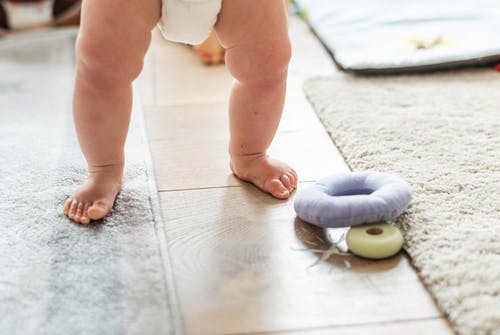We encourage couples to come in for an informal discussion with one of our fertility specialists for any concerns about reproductive health or to discuss potential options. Even if you are not ready to embark on fertility treatment, being aware of your choices can be reassuring; remember, it’s just a conversation.
We advise couples to come in for a consultation with one of our Fertility Specialists as a first step. Whether you are concerned about your fertility or looking for some expert guidance, our consultants can help you find the right path for you. When you meet with one of our fertility specialists, your medical history will be discussed in detail and all your questions concerning fertility will be answered with the option to call or email with any follow-up questions you may have.
At the initial consultation, blood tests may be taken to determine the woman’s hormone balance along with a pelvic ultrasound and a semen analysis will be done for the man. Once the tests are completed, your consultant will suggest an individual personalised treatment plan based on your results.
Your consultation is in complete confidence and you can be assured that your privacy and integrity will be protected at all times.
BOOK AN APPOINTMENT

After the couple has undergone a physical examination and testing, your fertility specialist will organise a second consultation with both partners to recommend a bespoke fertility treatment plan to help you conceive. Depending on the test results and before commencing fertility treatment, your fertility specialist will discuss the likelihood of success together with any associated risks.
At Orchid Fertility, we recognise the importance of providing both quality physical and emotional care during your treatment. All our patients will have access to our fertility counselling, which is included in your initial consultation and is available at any time during the remainder of your treatment with us.
BOOK AN APPOINTMENTA blood test will be arranged to co-inside with day 2 or 3 of your menstrual period to measure your hormone levels. If you haven’t done so, it is advisable to start a course of folic acid and to continue until you are a minimum of three months pregnant.
Hormone Suppression
Depending on your individual treatment plan, drug treatment will begin on or around day 21 of your menstrual cycle or between days 2-7 of your cycle. The medication prescribed will suppress the release of your own fertility hormones.
Stimulation of the ovaries
The next stage is a course of ovarian stimulation with hormone injections. The purpose is to grow several follicles rather than the single follicle that is usually produced each month.
The treatment cycle is then monitored with ultrasound scans to measure the development of the follicles. This may require an adjustment to your drug dose. When the follicles have reached an appropriate size, you will have a final injection to ensure the maturity of the follicle (hCG). This injection is carefully timed to allow egg collection to be performed 36 hours later.
BOOK AN APPOINTMENT

Egg collection is usually performed under sedation (a general anaesthetic is rarely required). You will be awake during this 30/45 minute procedure. A probe is passed through the vagina and into the ovary under the guidance of ultrasound ; the fluid from each follicle, which contains the egg, is carefully extracted. It is usual to obtain an egg from about 80% of the follicles retrieved. You may feel a few twinges during the procedure but should not be in pain and you will need to rest at the clinic for a short time before going home.
BOOK AN APPOINTMENTThe male partner’s sperm will be used to fertilise the eggs and a sample of his sperm will be required on the day of egg collection. All the eggs collected from the woman are graded according to their development and left in an incubator for a few hours before being mixed with your partner’s selected sperm.
In an IVF cycle, the prepared sperm and egg(s) are placed together in assigned dish(es). In an ICSI treatment cycle, a single sperm is injected into each single mature egg, which are then put in an assigned dish. The dishes are left in the incubator overnight to allow fertilisation to naturally take place. Usually about 60%-70% of the eggs collected will be fertilised and it is rare for a patient not to have any fertilised eggs the next day, although sadly, it can happen.

Around 12 hours after fertilisation, the egg will start to divide. After 2-3 days, the embryos will usually consist of four to eight cells, and at this stage are ready for transferring into the uterus. In some cases, the embryos are left for 2-3 further days before transfer as blastocysts.
At each stage of the fertilisation process, our team will keep you informed of how the embryos are developing and when you need to return for embryo transfer.
Embryo Transfer
The embryo transfer procedure is similar to a smear test and it may cause some minimal discomfort. One or two embryos are carefully transferred through the vagina and cervix to the uterus, where implantation begins.
If you have not had a period 14 days after embryo transfer, you should take a pregnancy test. If you are pregnant further medication may be prescribed to support the pregnancy and an ultrasound scan will be performed at around six or seven weeks’ gestation to confirm a visible heartbeat and ongoing pregnancy.
If, unfortunately, you do have a normal period, a follow-up consultation will be arranged and support counselling is available.
BOOK AN APPOINTMENTSearch Doctors/ Treatment Options / Infertility Factors